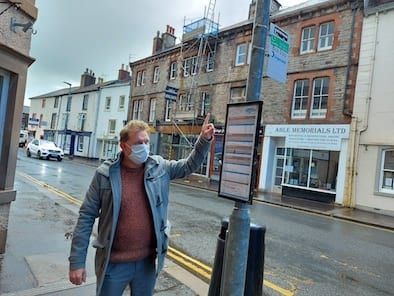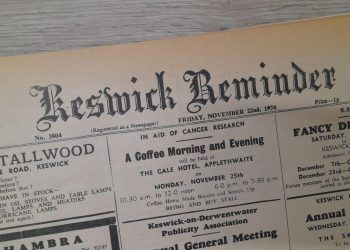
Face coverings must now be worn in shops, supermarkets, indoor shopping centres and transport hubs, such as train stations and airports, as the Government’s latest rules to help curb the spread of coronavirus came into place today.
Under the new regulations, members of the public will also need to wear face coverings such as a fabric covering, scarf or bandana, which covers the nose and mouth, in other enclosed public spaces, such as when buying food and drink to takeaway from cafes and shops.
If you are in a premises where you are able to sit down and consume food or drink you have bought, then you can remove your face covering in order to eat and drink on site.
Face coverings are not mandatory for anyone under the age of 11, those with disabilities or certain health conditions, such as respiratory or cognitive impairments which make it difficult for them to wear a face covering.
There is evidence to suggest that, when used correctly, face coverings can reduce the likelihood of someone with the infection passing it on to others, particularly if they are asymptomatic.
The Government is telling the public to play their part and wear face coverings in order to help fight the spread of the virus, enabling further easing of national restrictions.
The responsibility for wearing a face covering sits with individuals. Businesses are encouraged to take reasonable steps to encourage customers to follow the law, including through signs and providing other information in store.
Health Secretary Matt Hancock said: “As we move into the next stage of easing restrictions for the public, it is vital we continue to shop safely so that we can make the most of our fantastic retail industry this summer.
“Everyone must play their part in fighting this virus by following this new guidance. I also want to thank the British public for all the sacrifices they are making to help keep this country safe.”
As well as shops and supermarkets, face coverings must be worn in banks, building societies and post offices.Wearing a face covering will not be made mandatory in other venues which have measures in place to protect staff and the public from COVID-19.
These include:
• Eat-in restaurants and pubs
• Hairdressers and other treatment salons
• Gyms and leisure centres
• Cinemas, concert halls and theatres
For transport hubs, the requirements mean face coverings must be worn in indoor train stations and terminals, airports, maritime ports, and indoor bus and coach stations or terminals.
Anyone who doesn’t abide by the regulations and is not exempt under one of the categories set out in the regulations could face a fine from the police of up to £100, as is currently the case on public transport.
The police have said they will “engage, explain, encourage and finally enforce as a last resort”.
People wearing face coverings are still strongly advised to wash their hands or use hand sanitiser before putting one on or taking it off, avoid taking it off and putting it back on again a lot in quick succession, store it in a plastic bag in between washes or wearing, and avoid touching their eyes, nose, or mouth while wearing one.








